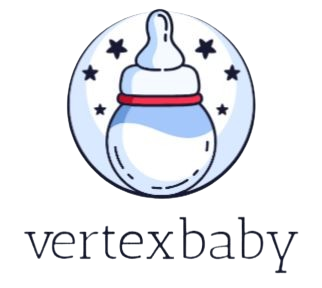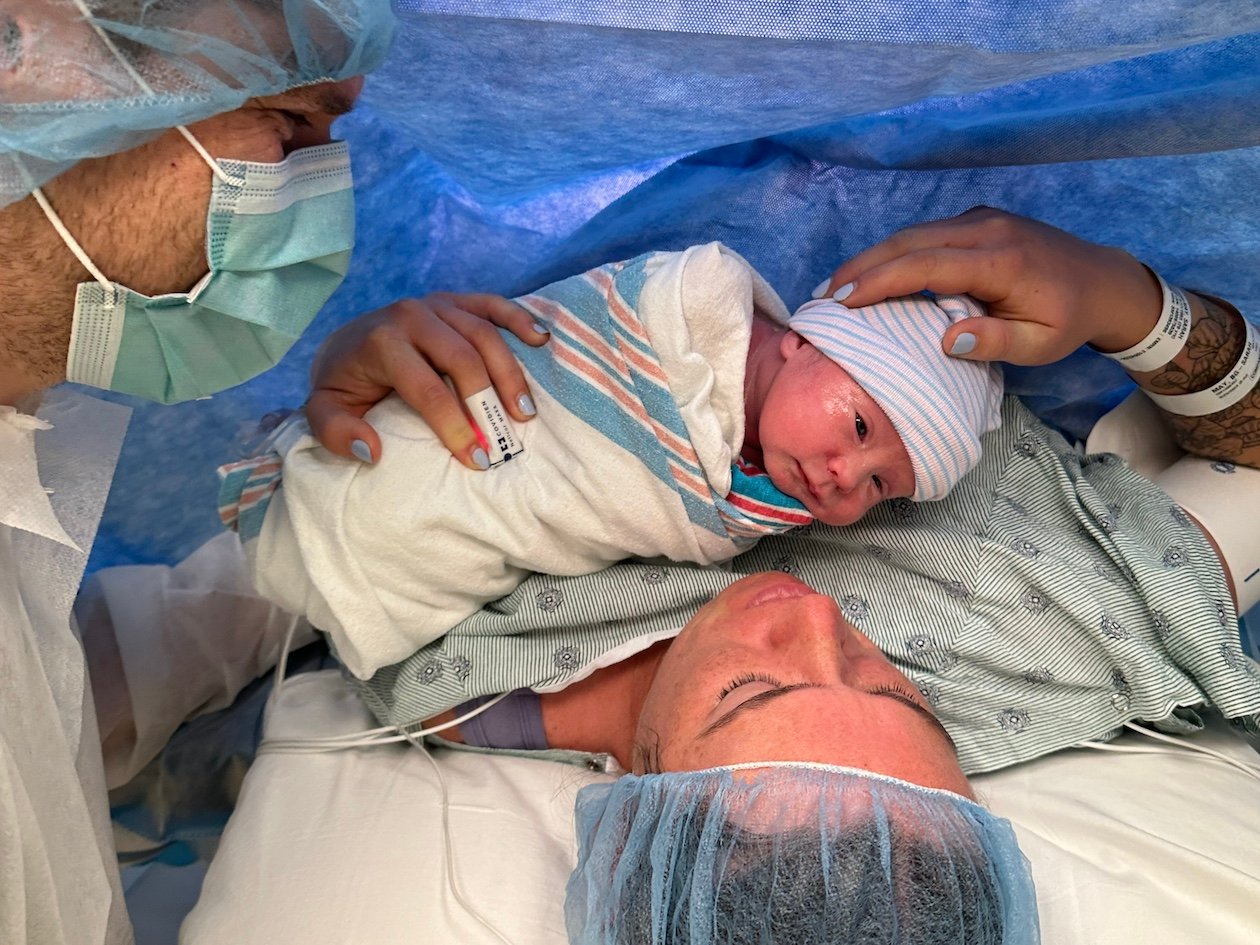[adinserter block=”2″]
Sarah and her husband were thrilled to learn that she was pregnant on New Year’s Day after a few months of trying. After an initial appointment to confirm the pregnancy, she continued normal patterns of life but noticed intermittent spotting. While she knew this was possible early in pregnancy, it made her anxious and she was very aware of the bleeding every day. Around 7 weeks, there was one day of heavier bleeding that caused concern and led her to follow up with her doctor, fearing a possible miscarriage, but her hCG levels were still rising. At her first ultrasound a few days later, the tech identified a subchorionic hematoma. Thankfully the hematoma resolved around the end of her first trimester.
The rest of pregnancy was generally smooth outside of a bad stomach bug in the second trimester. However, around 35 weeks, after a day of not feeling as much movement, Sarah called into her doctor’s office with concern and was told to come in for an ultrasound. The imaging showed a healthy baby, but a breech one, which was a surprise. It was late in the game to be discovering this and Sarah was concerned that all of her planning for a vaginal birth would now be for nothing. She tried all of the more immediate options for trying to flip the baby – acupuncture and different poses from Spinning Babies – but at 37 weeks it hadn’t worked. She then decided to try an external cephalic version, determining that she would ultimately look back with regret if she didn’t do everything possible to try for a vaginal birth.
Sarah and her husband went into the hospital the morning of Aug 25 for the ECV when she was 37 weeks and 5 days pregnant. After a delay in the initial procedure, Sarah received an epidural and the doctors began. 10 minutes later they were successful in flipping the baby and two hours of monitoring contractions and the baby’s heart rate began. Sarah was thrilled to finally be able to make plans for the spontaneous labor and vaginal birth she had hoped for. Towards the very end of the two hours of monitoring, the care team noticed a concerning pattern of decelerations in the baby’s heart rate that did not align with contractions. Sarah and her husband waited patiently through some extra monitoring to see what would happen, but pretty soon after that discovery the doctor decided to proceed with a caesarean, fearing placental abruption. The caesarean experience ended up being wonderful – the team was kind, thoughtful to ask about preferences right before the procedure, and Sarah’s husband was able to be with her in the OR the entire time and announce that the baby was a girl when she was pulled out. From the time they were told that they would go into the procedure to the birth of Avery was almost exactly 30 minutes – a quick turnaround to prepare emotionally for the arrival of your child! Thankfully Avery was healthy and they were able to confirm the placental abruption in the OR, meaning that if they hadn’t caught the signs at the end of the monitoring period it could have been a much more traumatic and dangerous experience. Overall, Sarah was incredibly thankful for an unexpected and smooth caesarean experience!
Sarah May Bio
Sarah lives in Washington, D.C. with her husband Darrell, her daughter Avery, and their dog Cash, and currently cares for Avery full time. She loves a good cup of coffee, a long walk on Capitol Hill, and their church community there in D.C.
Resources
SNP Therapeutics
Today’s episode is sponsored by SNP Therapeutics, makers of the Genate Test. Based on over 16 million dollars in NIH grants, and more than 30 years of nutrition and genetic research, SNP Therapeutics is leading the charge in the field of prenatal, precision-nutrition genetic testing.
SNP Therapeutics is committed to providing accurate and usable information to help mothers provide the best possible nutrition to their babies through The Genate Test: a prenatal, precision-nutrition, genetic test that offers personalized dietary adjustments and supplement recommendations based on your DNA.
You can rest easy knowing that your prenatal nutrition has been optimized by tailoring it to your genetic code. Find peace of mind about your prenatal nutrition with the Genate Test by SNP Therapeutics. Learn more at genate.com and Use code BIRTHHOUR15 for 15% off your order.
Related Posts
[adinserter block=”2″]
Credit : Source Post

